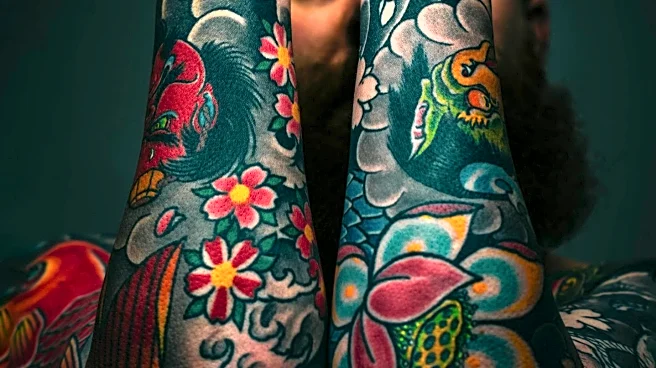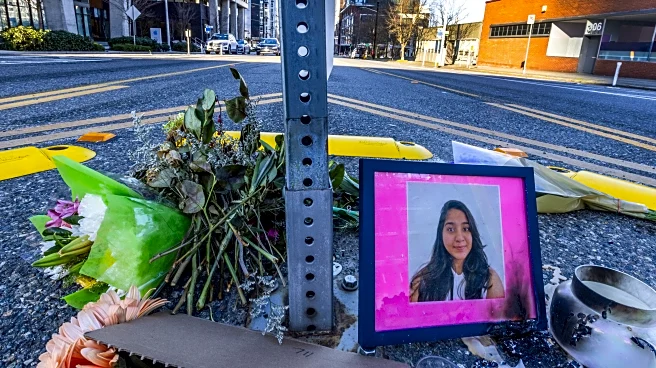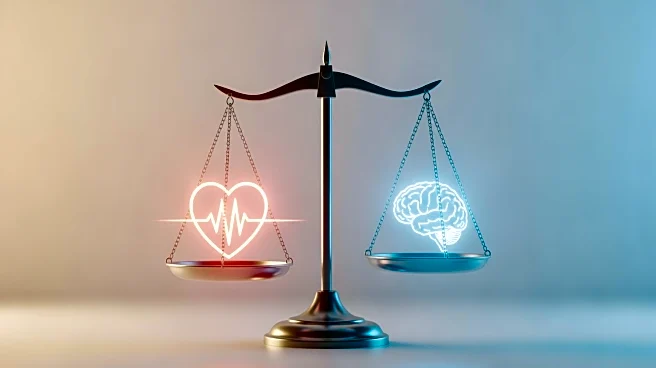What is the story about?
What's Happening?
Tattoo artists Angie and Jessica are providing a unique form of healing for women who have undergone mastectomies due to breast cancer. Through the art of post-mastectomy tattooing, these artists are helping survivors reclaim their bodies and boost their self-esteem. The tattoos serve as a form of emotional and physical healing, offering survivors a way to express themselves and find closure after their cancer journey. This initiative highlights the growing trend of using tattoos as a therapeutic tool for individuals who have experienced significant medical procedures.
Why It's Important?
The use of tattoos for post-mastectomy healing is significant as it addresses the emotional and psychological needs of breast cancer survivors. This form of art therapy can play a crucial role in the recovery process, helping individuals regain confidence and a sense of normalcy. It also reflects a broader societal shift towards recognizing and supporting the mental health aspects of medical recovery. By offering survivors a way to transform their scars into art, tattoo artists like Angie and Jessica are contributing to a more holistic approach to cancer recovery, which can improve overall well-being and quality of life for survivors.
What's Next?
As awareness of the benefits of post-mastectomy tattooing grows, it is likely that more survivors will seek out this form of healing. Tattoo artists specializing in this area may see increased demand for their services, potentially leading to more workshops and training programs to meet the needs of breast cancer survivors. Additionally, healthcare providers and support groups may begin to incorporate tattooing into their recovery programs, recognizing its therapeutic value. This could lead to collaborations between medical professionals and tattoo artists to ensure safe and effective practices.
Beyond the Headlines
The trend of using tattoos for healing after medical procedures raises important ethical and cultural considerations. It challenges traditional perceptions of tattoos and their role in society, positioning them as a legitimate form of therapy. This development may also influence the tattoo industry, encouraging artists to explore new techniques and styles that cater to medical recovery. Furthermore, it highlights the importance of body autonomy and the right of individuals to choose how they wish to heal and express themselves after significant life events.
















